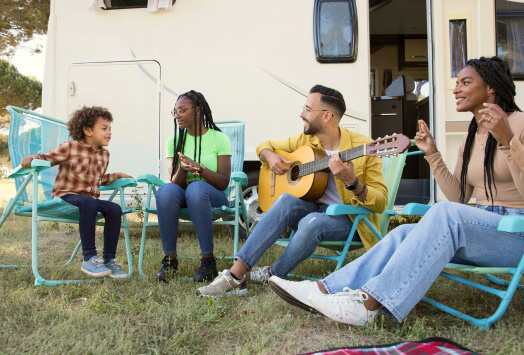Winter break is often the best time of the year for children. They get to spend time with their extended families, celebrate the holidays, maybe play in the snow, and take some much-needed time away from school.
But, winter break often consists of 1-2 weeks of full, unstructured time for your child. Whether you work or not, you probably want to figure out some balance between free time and activities so that your child feels supported and engaged over their time off from school.
Winter break activities: How do you strike a balance?
As always, it is best for you to start with your own child in mind. What works for your child might not work for everyone.
1. Ask what they want to do.
Then, actually listen to them! What are they saying that they want to do during their time off and what are they not saying? If your child says they just want to lay on the couch all day, then they are probably feeling a little burnt out from school. If you plan activities for them or sign them up for a winter camp, make sure it is lowkey and less cerebral than science camp.
If they don’t know, ask their teacher
Don’t let the dreaded, “I don’t know” response bring you down. If your child doesn’t know what activities would be fun for them, then send a quick email to their teacher to see what they have been enjoying in class lately. Are they really excited to build with LEGO or practice coding on the computer? This can help you find activities that will actually get your child engaged and interested.
2. Think about the last few breaks.
What happened during summer break or winter break last year? Were they bouncing off the walls because they were completely bored the whole time or were they begging for a respite from activities? Were they craving the company of other children or were they happy to spend time with you and your family?

3. Remember their preferences.
What type of activities do they prefer? Sports, arts & crafts, open play, games, STEM, something else? And how do they like to relax? Movies, spending time at home, reading? Think about how you can balance those preferences with the needs of your family (work, budget, other siblings, etc).
4. Keep a routine.
Children thrive with routine. Depending on their age, your child might want to sleep later (or get up earlier) during winter break. Try to keep them accountable to a general schedule so that their transition back to school is not too jarring. Similarly, at the beginning of their winter break, show them a calendar and explain to them how much time they have off, when their activities are, and the rest of your schedule so that they feel like they have a sense of control. If you are looking for guidance on how to create a morning routine for kids, check out our guide!
As you think about these questions, you can begin to come up with some ideas for their winter break activities and downtime. Likewise, there are other considerations you want to take into account as you plan your child’s winter break. You can also schedule in some time for educational activities to combat the learning loss that occurs when children are off from school for an extended period of time.
5. Don’t overschedule.
There should always be designated relaxing time and family time for your child. Do not book them in classes or activities for their entire break straight. This is just that - a break - and they need some time to unwind from the first quarter of the school year. If you do not have the ability to take time off of work to spend with your child during their school break, then maybe ask an older sibling or cousin, aunt or uncle, or trusted neighbor or friend to spend some time with your child. And if you're looking for some guidance on how to manage unstructured time for your child, check out our guide.

6. Find activities when traveling.
If you are traveling over the break, do some research beforehand to find activities for your child in your destination. Can you find pop up experiences, fairs, children’s theatre in the park, local cooking classes, or movie nights? Find fun activities for your child while on vacation will help reduce stress for you and make the trip more enjoyable for everyone. Check out our guide with more family travel tips to help it go as smoothly as possible.
7. Include a friend in the planning.
Your child might be nervous about going to a new class or activity during winter break because they might not know anyone. We recommend signing up your child with one of their friends from school, so that they both have a buddy in the class. You can just email your child’s friends’ parents and let them know the classes your child is interested in. It’s like a playdate but without the coordination!
To help you plan your child’s winter break activities, we’ve rounded up the best winter camps for kids in Chicago, Los Angeles, New York, and DC/Arlington. Check them out so you can get your child booked in an enriching experience this winter.
- Winter break camps in Chicago
- Winter day camps in Los Angeles
- DC & Arlington winter break camps
- Winter break camps on Long Island and in NYC
For even more exciting winter activities for kids during school break and the rest of the year, check out the Sawyer marketplace! We have thousands of educators from all across the country offering great classes and activities for children of all ages.
















